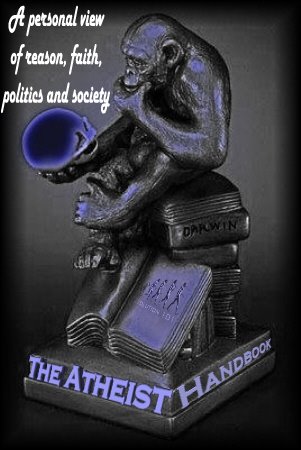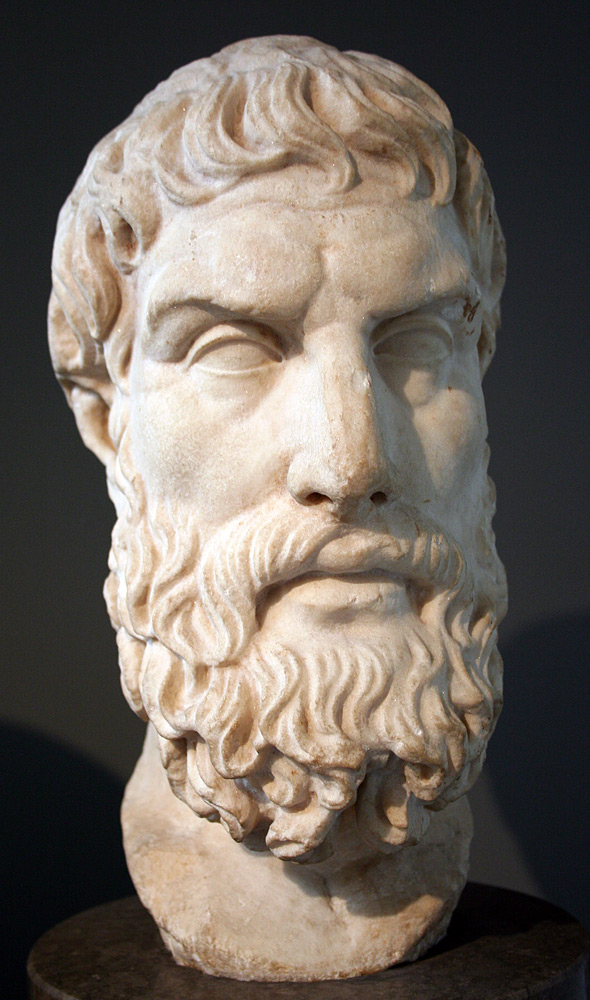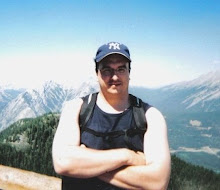
Fundamentalists: believe 2+2 =5 because It Is Written. Somewhere. They have a lot of trouble on their tax returns.
“Moderate” believers: live their lives on the basis that 2+2=4. but go regularly to church to be told that 2+2 once made 5, or will one day make 5, or in a very real and spiritual sense should make 5.
“Moderate” atheists: know that 2+2 =4 but think it impolite to say so too loudly as people who think 2+2=5 might be offended.
“Militant” atheists: “Oh for pity’s sake. HERE. Two pebbles. Two more pebbles. FOUR pebbles. What is WRONG with you people?”
-From Planet Atheism
Apparently I am missing out.
So declared an old friend mine who, when she discovered this blog and recent declaration on this little corner of the web that I am an atheist, promptly had a little freak out.
The odd thing about it is, my being an atheist bothered her to an enormous degree. To the point where she spent the better part of two hours during the wee wee hours a few days back, trying to convince me I was leading a cold,miserable existence because I refuse to believe in the supernatural.
Although I have encountered this kind of reaction before, it was the most vitriolic I have received from a friend. Strangers, bible thumpers, angry Muslims, sure. But not from a friend.
It started with a simple enough question from her: "Why are you an atheist?"
My answer to her was the same as it is to anyone who asks that question:"Evidence." An atheist is, as I have noted on this blog before, simply someone who does not believe in things for which there is no evidence.
My own rejection of my former belief in Buddhist cosmology - that is the physical reality of reincarnation - is predicated entirely on the same reasons I don't believe in any god or gods. No evidence. And the fact is there isn't any evidence for god, gods, goblins, Thor, and other supernatural critters great and small. There isn't evidence of an immortal soul, or "soul-stuff" that gets physically reborn into another body life after life. There just isn't.
This answer, it became very clear, was profoundly disturbing to my friend. To the degree where she became, it seemed to me, rather angry. Let me explain. She attempted to say there are things I have "faith" in that I can cannot personally explain. Like the theory of gravity, she suggested. I have "faith" that gravity works, and the mathematical and theoretical underpinnings of the theory are beyond my intellectually capabilities to understand. So therefore, I just have "faith."
However, as believers are often wont to do, they apply the term "faith" too broadly. Faith in the religious sense means to believe without evidence.This is the message of Jesus when he clobbers Thomas for demanding evidence of the resurrection. Believe, don't think. Accept without evidence. This is blind faith, and in the context of religion there isn't any other kind.
Do I have this kind of faith in gravity? No.
For one thing, I had to take physics in school and learned to do some of the basic maths. I am the first to admit I am no Isaac Newton, and math is not my strongest suit. However, I understand the basic maths - my friend's little insult to my intelligence notwithstanding.
However, even if I had not taken physics at all, would I have to have religious faith in gravity? Not at all. And the reason is that one can trust in the specialized authority of the physicists who do the math and the theoretical work. This is the same kind of trust you would place in your doctor to find out what is making you ill.
For instance, I trust in Albert Einstein's work on relativity. I most certainly cannot do anything but the most elementary mathematics when it comes to do this, so I have to trust that the science is right. However, and indeed as advances in science are showing us, that trust is not and should not be absolute. Einstein might not have been 100 per cent right. So I have to trust in the scientists who find new conclusions and change our knowledge.
This is not blind faith. Because I do not hold any of these fields of science that lay outside my own education and skill as absolute. As any good rationalist will admit, our knowledge changes all the time. Blind faith, such as the faith in a god, is absolute and unquestioned.
Finally, even if one does not understand physics, you can always learn. One of the great joys in a life my friend regards as bereft of meaning, is to take the time to learn some bit of science I didn't know before. It does take effort and sometimes hurts my brain, but it is also wonderful to learn something new. As an educated woman, my friend had to concede this last point at least.
So she then said a very curious thing. Science, she said, cannot explain love.Well, a bag of tail and all that, of course it can, I said.
But she declared the "funny feeling in your stomach" when you see a child do something cute, or fall in love with someone, cannot be identified and explained by science. Well of course it can. Our emotions are products of our minds and can have the most staggering physiological effects. Stress can make us sick. Laughter can release chemicals in our brains that make us feel good. Love can make us both feel good, and awful. Our emotions and our bodies reaction to them do not come from the ether, but are the result of how our brains work.
Well then, she declared by fait, you cannot observe love - like a mother's love for a child, so you have to have faith in it. It is such a transcendent kind of love, it cannot be understood but through some of kind of blind, religious faith. Not all I said. First, once can observe how a mother behaves toward her children (and this is a common trait in many mammals by the way). That is a pretty good indication. And it is interesting to note that while many mammalian mothers, including humans, will fiercely protect the life of her child, it is not universal. Just read the headlines and you find cases of mothers killing their babies, often in fits of depression. Some women just don't have much of a maternal instinct at all, even after the child is born.So much for the transcendent "mother's love."
A mother's love for a child is a product of our brains, and there are very good evolutionary selective reasons for that emotion to be there. However, my friend then declared my life was cold and meaningless, and that I am missing out, if I accept that something love is the result of activity in our brains. Ridiculous.
Her statements implies that if love is a material product of our minds, then it is somehow not "real." When the opposite is true. Just because I understand where our emotions come from that does not make them "unreal" or make me any less captive to their impacts. I don't experience love or hate any less than anyone else does. I just don't give it a supernatural gloss.
Still she said, she has experienced the hand of god in her life. Fine, I said, how? When? How do you know it is real? I got no answer, but she was getting increasingly upset. She knows god is real, she said, that is enough. Fine, I said. I actually don't care. You are free to believe whatever you want to believe. But you cannot then turn around and tell me my life is devoid of meaning because I do not worship something you simply "know" to be true. It all came back to my original answer to her question - evidence. There isn't any evidence. What had happened was really I provided an answer she didn't like.
What was very curious about this entire exchange, and I have only provided a glimpse of it here, is that my atheism bothered her a great deal. That I am happy, and unbothered by it wasn't enough. More than once she repeated the phrase "but you are just missing out" because I don't believe. Maybe I am missing something because I won't believe blindly in a sky god for which there is zero evidence. But would much rather face reality for it is, than to believe in something that is not.
Then came what I usually hear from believers who are bothered, deeply, by the people who reject that which they profoundly believe in. I have long suspected, although I certainly have no evidence for this, so take it with a grain of salt, that believers need to have other people believe in what they do. Or at the very least, not reject it out of hand. I suppose this might be because if someone can reject it, then that opens the possibility that their belief in Jesus or Allah or reincarnation or whatever, might be wrong. And that is something they simply do not want to consider. I mean, my friend was not bothered when I accepted the whole Buddhist deal. By believing in karma and reincarnation, I believed in SOMETHING supernatural. Daniel Dennett calls this "believing in belief." Even if it was not the same supernatural vagaries she believed in, it was still something. And that was fine. Rejecting the supernatural on the basis of evidence was not fine.
Anyway, what came next was "Well, what do you believe then?" By which she meant, what religious thing do I believe in. And when the answer was "nothing", I got the empty life thing all over again.Yet an atheist's life is not empty. Rather than be guided by the often cruel and unjust morality of the bible, I turn to philosophy, to Spinoza,Decrates, Plato, Epicurius and even the Buddha (although I certainly do not believe anything supernatural about him, assuming he was real at all).
I have family, friends, and a career. I have no empty hole in my life because I do not believe. The meaning of my life is whatever I decide it to be. As Bertrand Russell said, in so far as we not at the whims of natural forces, the purpose of our lives is for us to decide. That is the responsibility and the challenge of being human.
I rather think there is something uplifting about accepting our lives as they are without belief in an invisible god who requires us to worship at its feet like groveling minions. Our life is the only one we get. There is nothing afterwards just as there was nothing before. That being the case, we have only one chance to try and make something of it. No mulligans. The choice to do something, to try and contribute something, is ours.
So to my friend should she be reading this, and to those who think atheists are "missing out", rest assured I do not suffer because of my disbelief. My life is full, busy, and as satisfying as anyone else's. Above all, I do not require blind faith for my life to be fulfilling and happy.
My disbelief bothers you, not me.
















2 comments:
You captured four months of hell (pun intended) between my exgirlfriend and I in just a few paragraphs. Thanks, i enjoyed the antecdote.
What is the sense of life then?
I think that the people needs to believe, to blame someone or something of being here.
Great blog!
Post a Comment